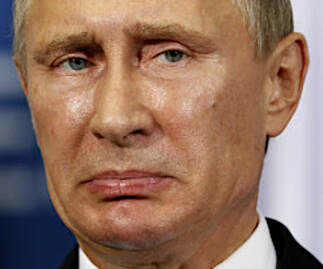
Russia and Vladimir Putin are overly dependent on fossil fuels for economic and political survival to a greater extent than any other nation outside of the Middle East. Russians not only need oil, gas and coal to light and heat their homes and fuel factories and transportation; they also rely heavily on oil and gas exports for revenue. If these go south because the rest of the developed world is moving beyond fossil fuels, Russia will suffer greatly and may not survive in its present authoritarian guise.
Russia’s export revenues from fossil fuels account for half of its annual budget. As Europe, the U.S., China and rapidly expanding Asian economies such as Singapore, South Korea and Taiwan embrace climate change policies, this essential funding source will dry up. Plummeting demand during the pandemic has already devastated the country’s export revenues. It is unlikely that global demand for energy resources will return to pre-pandemic levels anytime soon due to the large number of employees who will continue to work from home and a predicted decline in commuting and business travel, among other factors. Russian GDP will have a difficult struggle to move back into positive territory.
Oil and natural gas sales account for approximately two-thirds of Russia’s total export revenues. They contribute more than 30% to the country's gross domestic product (GDP). At the same time, the Russian ruble is falling in value, making it more expensive for Russians to buy the goods and services they need. The ruble is currently approaching a level at which Russia will experience the lowest purchasing power parity (PPP) relative to the U.S. of any country in the world. Declining PPP will lower living standards.
A falling ruble also means a sharp increase in import prices, which adds to inflation. To combat this, Russia must raise interest rates to levels that are going to precipitate an even deeper recession than Russians are currently experiencing.
Russia is already struggling. Low oil prices in effect since 2014 have set back the country’s economy and all attempts at achieving healthy economic growth. Brent crude oil, the global benchmark for Russia's main export, is now $15 below the level envisaged by Russia's current budget plan. Meanwhile, the coronavirus pandemic has driven Russian inflation to levels that would be unacceptable in the West. Inflation has more than doubled since the pandemic began.
Taken together, a sustained period of anemic and even negative GDP combined with high inflation portends poorly for Russia’s political stability. Add in excessive dependence on fossil fuels, the absence of any climate change policy, and dwindling oil and gas export revenues, and the result will be a diminution of Russia’s ability to be a player, much less a mischief-maker, on the world stage. This is all good for the United States.
Vladimir Putin has been propped up by oil and gas export revenues for years. Without them, he will be in trouble. Popular unrest protesting the jailing of dissident leader, Alexei Navalny, and the severe economic disruptions caused by a declining standard of living, has erupted in more than 140 Russian cities. Expect civic discontent to escalate as oil and gas revenues continue to decline.
The opportunity to severely weaken one of the West’s principal enemies is an additional incentive for the U.S. and Europe to opt for robust climate policies already justified by science and reality.
Dick Hermann
February 12, 2021


 RSS Feed
RSS Feed